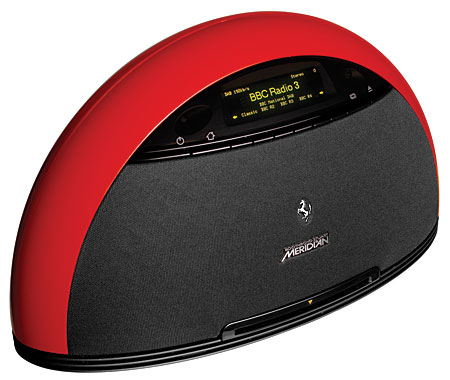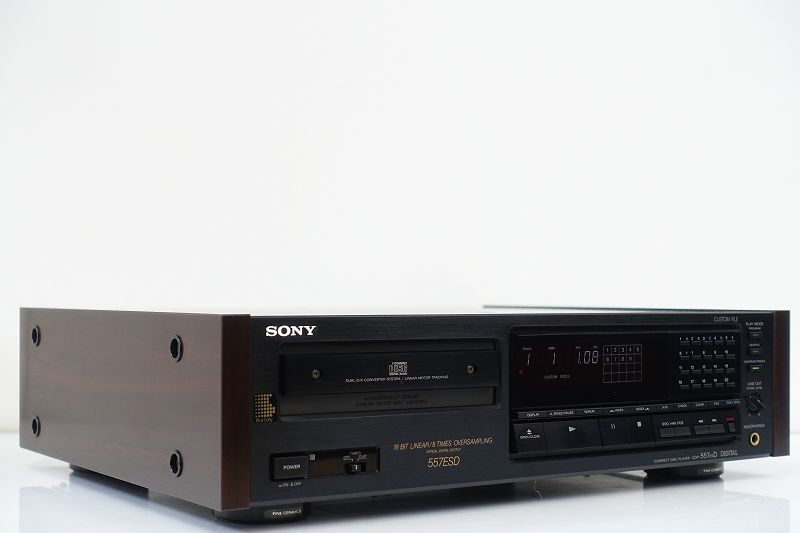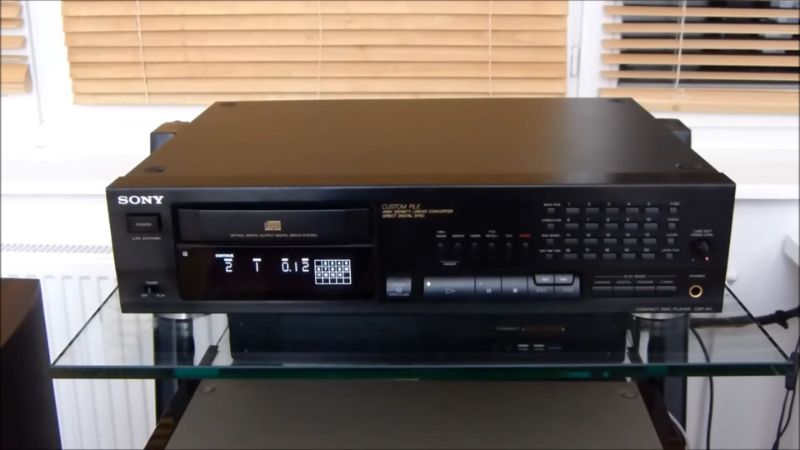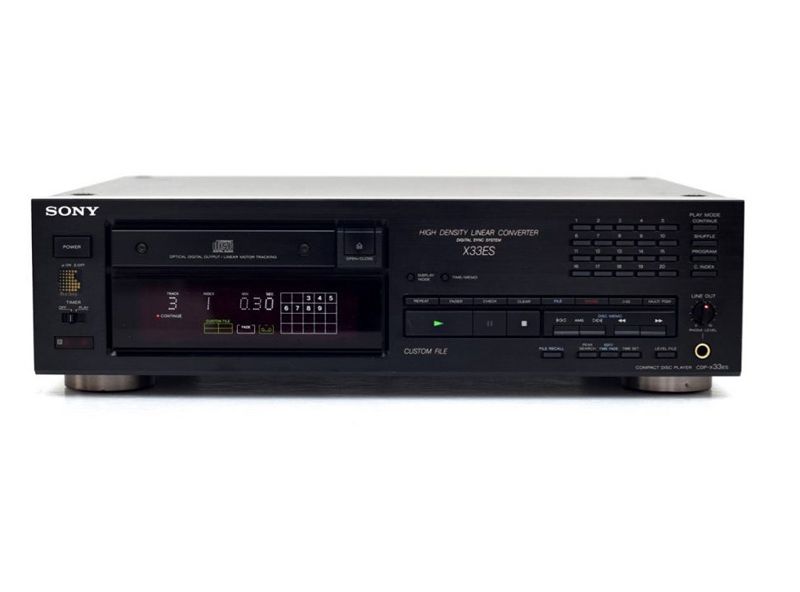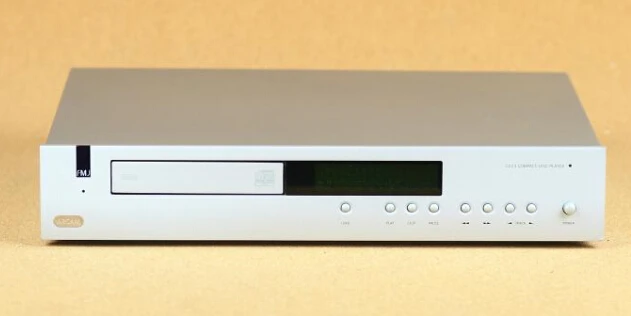The Lecson AC1/AP1 preamplifier/power amplifier combination was released in 1974, and it was one of the most remarkable pieces of industrial design the world had ever seen. Allen Boothroyd and Robert Stuart, the two men behind it, established themselves as one of the best design teams in British hi-fi history.
The Meridian brand was introduced to an unsuspecting world in 1977, with the 101/105 pre-power amplifier demonstrating the Boothroyd/Stuart partnership’s ability to create one of the world’s most aesthetically stunning blends of form and function. This sounded fantastic by today’s standards, yet it looked, operated, and felt nothing like anything else on the market. Its austere minimalism stood in stark contrast to, say, the massive, button-festooned amplifiers coming out of Japan.
The Meridian F80 was released in 2006 and retailed for £1,495; however, it was not intended to be a real ‘hi-fi separates’ product. Rather, it was a fun side project that developed wings and took flight. Meridian was able to reach markets it could never have touched before by forming a joint venture with Ferrari, which provided some of the construction technologies. It was essentially a high-end portable music (and movie) center — a glorified table radio with DAB/AM/FM and silver disc (CD, CD-DA, CD-R/RW, MP3, WMA, DualDisc, DVD-V, and DVD-R/RW) playback. But it wasn’t a pale Bose knockoff; it was true hi-fi in small, with all of the technology found in Meridian’s separates (albeit on a larger scale). The elliptical design is bold yet understated, and it was available in five official Ferrari colors as well as various limited edition premium finishes.
Meridian said at the time of launch that the F80 was created in the spirit of a genuine ‘home wireless,’ one that would serve as a focal point for ears and eyes and fill a space with sound. The 6.5kg F80 has a solid diecast metal base and three loudspeakers housed in separate, inert enclosures made from a proprietary alloy-injected composite inside its high-quality (408x230x185mm) plastic shell. “Ferrari’s close cooperation and technical skills proved beneficial in this realm of materials technology,” Meridian stated. The electronics are remarkable, featuring a DAB/FM/AM tuner and a built-in antenna for local radio reception, as well as twin antenna hookups.
These are independently assignable, so you may use one for AM and the other for cable radio, for example, to give you an idea of the detailed thinking that went into the F80. Three power amplifiers give 80W to the two front speakers, as well as an inbuilt rear subwoofer, and the speakers are all controlled by digital signal processing. The loudspeakers themselves are custom-built full-range designs with strong neodymium magnets and cones composed of magnesium and aluminium alloy.
All well and good, but the F80’s display and control interface are what really set it apart for me. The unit includes a fantastic fine-pitch dot matrix ‘organic LED’ display on the front that provides a wealth of information. In radio mode, for example, it displays the station name, bitrate, stereo/mono mode, radio text, and the names of one bank of preset stations. The station names programmed into the next bank of presets are displayed when you press the right hand arrow button. When you change the source to disc, the display above the row of buttons changes to provide the track and time information, as well as other options. The concept is that there is a ‘adaptive interface,’ in which the bottom display area, in concert with six unlabeled buttons in the center row of buttons, controls all of the necessary operations. The only additional control on the machine is a rotary volume knob on the bottom right hand side of the case, which works quite well and requires very little acclimatization.
The connectivity of the F80 is very important. There are sockets around the rear that you won’t find on any other mid-nineties ‘table radio.’ The DVD player has a 3.5mm minijack stereo input, an optical digital input and output, a ‘dock’ connector (for a future bespoke iPod dock), and composite and S-Video outputs. All of this indicates that the F80 connects to the outside world better than typical.
This half-moon-shaped Meridian, like most hi-fi, sounded average right out of the box to me. Things really stepped up a gear after a few ‘warm up laps,’ and it really does sound really amazing, which sets it apart from any other product of its type I’ve heard so far, including the B&O BeoSound One (£850), which was its closest price rival at the time.
It features a very clear midband, with lots of detail and a sense of elegance that shows its high-end roots, as does any recent Meridian gear. It has a dry tone to it – don’t anticipate the richness of an old valve table radio – but it’s far from harsh. Rather, the F80 makes a more than half-hearted attempt to precisely and neutrally recreate what’s on the disc (or radio). The Meridian stands out by providing significant midband insight without sounding thin. That’s taken care of by the rear-mounted subwoofer, which provides true bass reinforcement without being boomy or semi-detached.
Even if you’ve just been listening to a professional separates system, a decent CD produces a musically appealing sound that is taut, controlled, crisp, and clean. Of course, placement is important, and the kind of environments in which the F80 is likely to be found may not be ideal acoustically. It works best in open space in the center of a room, but it can still fill a medium-sized room with sound even if it’s crammed into a corner and sat at an angle. The Meridian remains crisp and undistorted even when expanded, demonstrating the benefit of its strong internal structure — no rattles or hums here!
Downsides? Well, the treble is a little veiled (what do you expect, they are full range speakers!) When you’ve just switched on, there’s a little touch of sibilance as well. The footage isn’t spectacular, especially by today’s upsampling Blu-ray standards, but it’s still a handy tool to have — perfect for bedrooms with small TVs for a quick fix. The F80 was an interesting moment for Meridian, and it’s still a redoubtable portable performance today. Brilliantly designed, beautifully constructed, and eminently “fit for purpose,” the F80 was an exciting moment for Meridian, and it’s still a redoubtable portable performer today.

